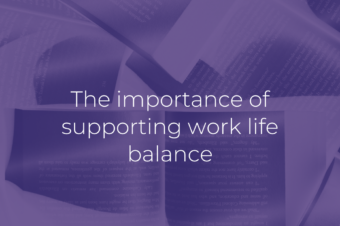
High levels of stress in the workplace adversely impact the employee experience. It matters because these days it is very easy for employees and ex-employees to post about the organisation on social media, such as Glassdoor. If you are seen as offering an unhealthy work environment it can make it harder to recruit good candidates.
Stress is: “That which arises when the pressure placed upon an individual exceeds the capacity of that individual to cope.” Confederation of British Industry (CBI)
“The adverse reaction people have to excessive pressures or other types of demand placed on them at work.” HSE
Chronic stress leads to impaired cognitive and physiological functions and workplace stress, if not addressed, may cause a range of business issues which could hurt morale, engagement and profits; which could have serious consequences:
- Absenteeism
- Lower overall productivity
- Increased staff turnover
- Stress related expense such as health insurance costs and sick pay
What to do
Some sorts of stress motivate you to perform better, encourage growth, and give meaning to your life. Differentiating between good and bad stress is crucially important for a healthy life. Management can help their staff tackle stress with some simple steps:
- Secure senior management commitment
- Undertake a risk assessment
- Design a stress prevention strategy
- Ensure a participative approach to the prevention strategy
Remember that small things can make a big difference. A simple ‘thank you’ for a job well done, goes a long way. Addressing the working environment should be a two-way process, including detailed surveys of staff views. A supportive and compassionate working environment shows staff and customers that you are a good employer.
Tips to manage stress effectively:
Time management – prioritise tasks and do the important jobs first. Don’t put off the unpleasant tasks, avoidance causes a great deal of stress. Give unpleasant tasks a high priority and do them first.
Know your limitations – learn to delegate effectively and be assertive enough to say ‘No’ without feeling guilty.
Be realistic – changing a difficult situation is not always possible. Recognise and accept things as they are and concentrate on what can be controlled. Managing change effectively is essential or else performance will be reduced.
Develop a positive thinking style – if something is becoming a concern then try to reframe it. Talk over problems before they get out of proportion, and view things from a different and less stressful perspective.
Time out – we perform more effectively during work if we regularly take a short 10 / 15 minute break. At least one annual break of at least 10-14 continuous days is recommended.
If you have other top tips for managing stress, let us know on social media








